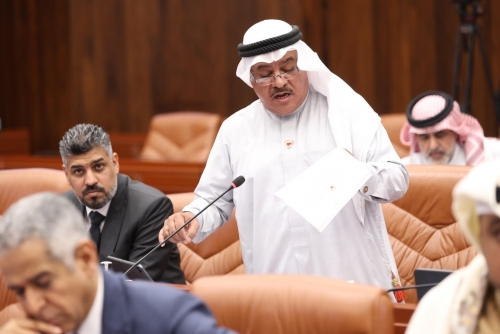MPs Seek to Scrap Utility Debts After Resident’s Death
TDT | Manama
Email : editor@newsofbahrain.com
MPs propose cancelling unpaid utility bills upon a resident’s death to ease financial strain on families
- Electricity and Water Authority (EWA) warns of financial impact, stating it relies on consumer payments to cover costs.
- Current rules waive two years of unpaid fees for low-income cases, but MPs push for broader relief.
Parliamentarians are calling for unpaid electricity, water, and municipal fees to be written off upon a resident’s death, arguing it would ease the financial burden on grieving families.
The proposal, set for discussion on Tuesday, has drawn opposition from the Electricity and Water Authority (EWA) and the Ministry of Municipalities Affairs, which warn that such a move could strain EWA’s finances.
MP Mohammed Al Olaiwi and four others, who tabled the proposal, argue that many residents struggle to pay their bills while alive, making it unfair for their families to inherit these debts. MPs also caution that outstanding utility bills can lead to legal disputes, especially when the estate is modest.
“These charges are being forced upon families already dealing with loss,” said Al Olaiwi. “It is neither fair nor humane to demand that they use what little they have to settle bills that should have died with their relative.”
EWA, however, has stressed that writing off debts for all deceased residents, regardless of financial status, would cut into revenue and affect service quality. It maintains that it does not pursue families for amounts beyond the value of the estate.
In a written response, the authority explained that it does not require security deposits on properties, considering the property itself as collateral. Once ownership is transferred through inheritance, the new owners are expected to clear outstanding dues.
Current regulations already provide some relief. EWA and the Ministry of Municipalities Affairs waive two years of unpaid fees for low-income deceased residents registered with the Ministry of Social Development. Other cases are reviewed individually.
EWA has also highlighted the broader financial impact, stating that it purchases electricity and water from private suppliers and must settle payments within 42 days. It relies entirely on consumer payments to meet these obligations and warns that blanket debt forgiveness could disrupt financial planning.
Despite these concerns, the proposal is expected to gain support in Parliament, with MPs arguing that debts tied to a deceased person’s name should not burden their family. The matter will be put to a vote on Tuesday.
Know Better
- Bahrain: The EWA waives up to two years of unpaid bills for deceased residents classified as low-income by the Ministry of Social Development.
- UK: Energy suppliers may write off outstanding bills on a case-by-case basis, especially if the deceased had no estate or next of kin.
- US: Utility debts are usually settled through the estate, but hardship programs may provide partial relief.
In many countries, unpaid utility bills after a resident’s death are typically deducted from the deceased’s estate rather than automatically waived. However, some jurisdictions offer hardship relief programs where debts may be written off for low-income families or those facing financial distress.
Related Posts

